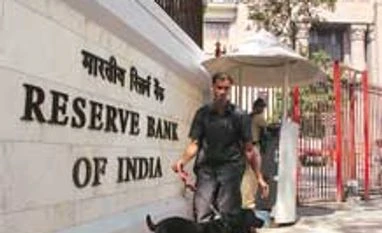No target for number of new bank licences: RBI
An official at the central bank said 'financial inclusion' has to be pre-condition for such banks to come
)
The Reserve Bank of India (RBI) on Monday said there was no specific target for the number for new bank licences it would grant.
“As of now, we have received 26 applications. Financial inclusion has to be a precondition for such banks...How many banks come depends on their complete plan and an analysis of their proposals. We will have to wait for a few months before deciding how many banks would be given licences. There is no target number. It depends on the proposals and business plans, including proposed efforts towards financial inclusion. We cannot predict how many applicants will pass these requirements,” RBI Executive Director R Gandhi said at a seminar held at Maharshi Dayanand College of Arts, Science & Commerce.
He defined financial inclusion as the process of ensuring access to appropriate financial products and services for all sections of the society in general, and vulnerable groups such as weaker sections and low-income groups in particular, at affordable costs, in a fair and transparent manner through regulated mainstream institutional players.
He said the challenges in this segment were in deciding acceptable access, an appropriate set of financial products and services, affordable costs for the excluded and the cost to be imposed on the formal financial system.
He added account penetration in high-income and developing economies differed substantially. While it is nearly universal in high-income economies, with 89 per cent of adults reporting they had accounts in a formal financial institution, in the case of developing economies, it is 41 per cent. Gandhi also cited a recent World Bank study that globally, only 50 per cent of adults reported having accounts at formal financial institutions— banks, credit unions, cooperatives, post offices and microfinance institutions.
“As of now, we have received 26 applications. Financial inclusion has to be a precondition for such banks...How many banks come depends on their complete plan and an analysis of their proposals. We will have to wait for a few months before deciding how many banks would be given licences. There is no target number. It depends on the proposals and business plans, including proposed efforts towards financial inclusion. We cannot predict how many applicants will pass these requirements,” RBI Executive Director R Gandhi said at a seminar held at Maharshi Dayanand College of Arts, Science & Commerce.
He defined financial inclusion as the process of ensuring access to appropriate financial products and services for all sections of the society in general, and vulnerable groups such as weaker sections and low-income groups in particular, at affordable costs, in a fair and transparent manner through regulated mainstream institutional players.
Also Read
He said the challenges in this segment were in deciding acceptable access, an appropriate set of financial products and services, affordable costs for the excluded and the cost to be imposed on the formal financial system.
He added account penetration in high-income and developing economies differed substantially. While it is nearly universal in high-income economies, with 89 per cent of adults reporting they had accounts in a formal financial institution, in the case of developing economies, it is 41 per cent. Gandhi also cited a recent World Bank study that globally, only 50 per cent of adults reported having accounts at formal financial institutions— banks, credit unions, cooperatives, post offices and microfinance institutions.
More From This Section
Don't miss the most important news and views of the day. Get them on our Telegram channel
First Published: Jul 16 2013 | 12:49 AM IST
